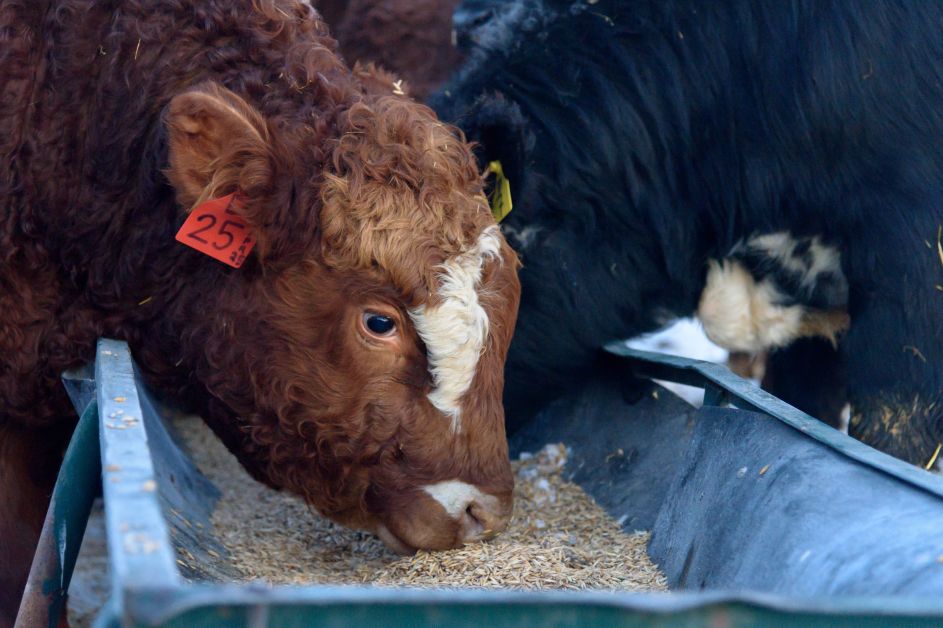
With an increasing demand from the public and food business sectors to reduce antimicrobial resistance, producers are asked to adjust current practices to meet new standards laid out by Health Canada.
Health Canada recently announced a new regulation regarding the usage of antimicrobials in livestock production that will come in effect on December 1, 2018.
The regulation requires that all antimicrobial products including antibiotics and medicated feed that were once available over the counter will need to be prescribed by a certified veterinarian.
“Basically we cannot sell prescription drugs so if they come in and ask for a drug, we have to decide whether they can have it or not… We’re going to have to say ‘What are you using it for?’ and then we’re going to have to make a decision whether that is a reasonable choice of drug or if we’ve got a better one to use,” said Dr. Morrey Lehmann, veterinarian and owner of the Drumheller, Three Hills, Hanna, and Trochu veterinary clinics.
Antimicrobial drugs like antibiotics are important to fight bacterial infections in humans and animals. Prescriptions will be required for any drug that has a ‘Pr’ symbol on its label. This can be in the form of feed, in water, otic, oral, topical, implant, injectable, intrauterine, intramammary, dusting powder treatments, etc.
Producers are expected to adjust to this steep learning curve as animals develop antimicrobial resistance to the products used to initially treat the sick or unhealthy animal. “There’s a lot more resistance than we did in the past, there is no doubt in my mind about that,” said Lehmann. “I’ve had lots of people come in and ask me about it, they have lots of questions about the new regulations and how it’s going to affect them.”
A large group of cattle will be monitored under a Herd Health Program but for a smaller family farm, this may become a bigger issue.
“The guy that’s got 20 head of cows; I mean if we don’t see them on a regular basis, we don’t feel very comfortable so he will have to start bringing his calves in and we’re going to have to look at them,” said Lehmann. “If you’ve got a small herd, it’s going to be more of an issue than if you have a bigger herd.”
This year will act as a grace period for producers, suppliers, and veterinarians alike to build a system before the regulations become mandatory.
“It’s going to take it out of the farmers hands to some degree, we are going more like Europe and less like the United States,” said Lehmann. “The problem is that they’ve been using the antibiotics wrong to some degree. I remember one of the vets I used to work for that used to argue with his boss [as to whether] they would use one or two cc’s of penicillin and now I use 50 so I mean it is changing there’s no doubt about it but I mean I think a lot of the antibiotics have been misused.”
A Veterinarian Client Patient Relationship (VCPR) plays an integral part if not the heart of the new system as it is not a signed contractual agreement but rather a working connection and interaction between veterinarian, client and specific animal patient or group of animals.
A legitimate VCPR is only considered to exist if medical records of the practice contain sufficient evidence of relevant and timely interaction between all three parties. These interactions can include farm or home visits, clinic appointments, direct animal examinations, lab reports or production record reviews, etc.
Veterinarians are responsible to keep records of this information in the same way a pharmacy would.
Although this system can be seen as a way to reduce the use of antimicrobials and build resistance, producers are warned that the cost of production and service options become limited.
“I think the problem is that people will go from one veterinarian to another and then they could have some problems but I mean if you are with one vet clinic then I don’t see that it’s a major issue,” said Lehmann.
Suppliers may see a shift in business as well. The Mail spoke with Co-op General Manager Brent Walker on the matter.
“It’s a significant portion of the animal health category [revenue] however in the limelight these days, there does need to be some traceability for that so it’s understandable too,” said Walker.
Walker was glad to still have the money circulating in the area and will prepare as necessary.
“Still it’s not money leaving Drumheller and to me that is the main thing,” said Walker. “Coming this December 1, there will be change for us and we will budget accordingly.”
The website on Veterinary Oversight of Antimicrobial Use produced by the CVMA and provincial associations is mandatory for veterinarians and their clients. It can be found here: https://www.canadianveterinarians.net/documents/pan-canadian-framework



































